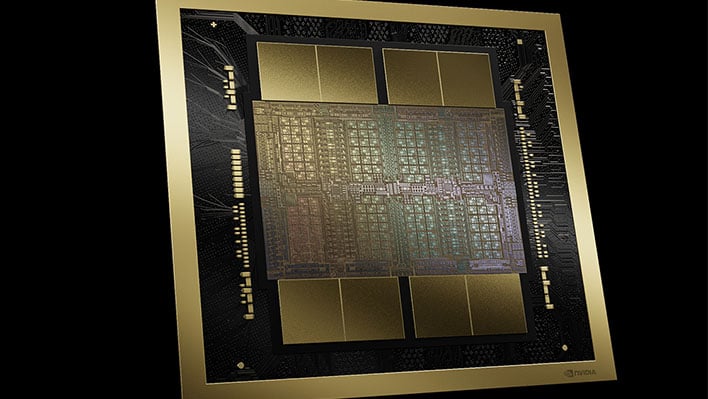NVIDIA Blackwell GPU Delay Rumor Resurfaces As Supermicro CEO Speaks Out
The highly anticipated NVIDIA Blackwell B100 and B200 silicon are slated to continue to provide the AI dominance NVIDIA has enjoyed recently. As you can imagine, companies are eager to get their hands on the performant parts. During an earnings call, an analyst asked Super Micro Computers about the reported delay for the B200 part specifically.
As to the delay, an apparent issue cropped up with the new Blackwell GPUs, which use new technology such as TSMC's CoWoS-L Packaging with a Super Carrier Interposer. This bleeding edge GPU tech can result in delays with unforeseen timing, as is evident here.

One thing consumer and data center products do have in common is the combination of better efficiency and more power. NVIDIA has at times made some model changes to its consumer GPUs that have been used for data centers, such as the RTX 4090D for the Chinese market. This is the result of import bans and limits on GPUs, causing users there to seek a plan b when data center products are not available.
NVIDIA has captured a huge swath of both the gaming market and AI data center space. While AMD and Intel have attempted to compete, NVIDIA still has a venerable moat around its technology and customer adoption.
Mostly notably, NVIDIA has drawn the attention of investors on both Wall Street and Main Street the world over with its blazing stock performance. This means that GPU delays are not just frustrating for users, but for those who view it as a negative towards NVIDIA's Wall Street performance. Many companies, such as Super Micro Computer, depend on the success and proper execution of NVIDIA to also enjoy continued success of their own.

